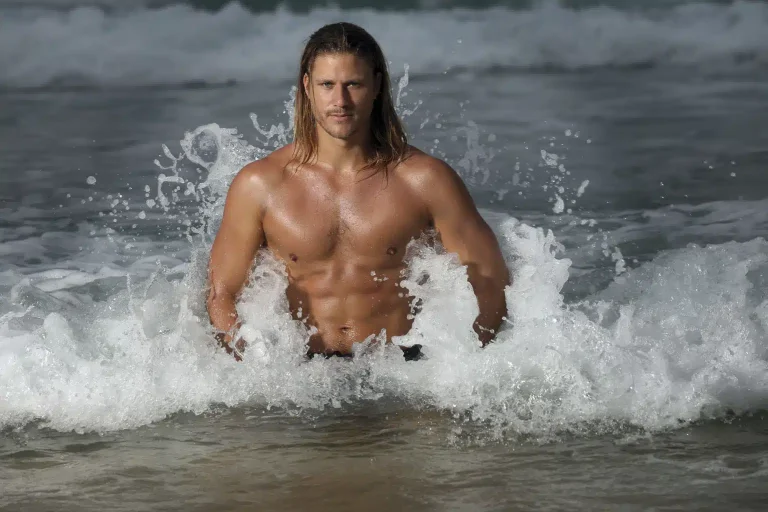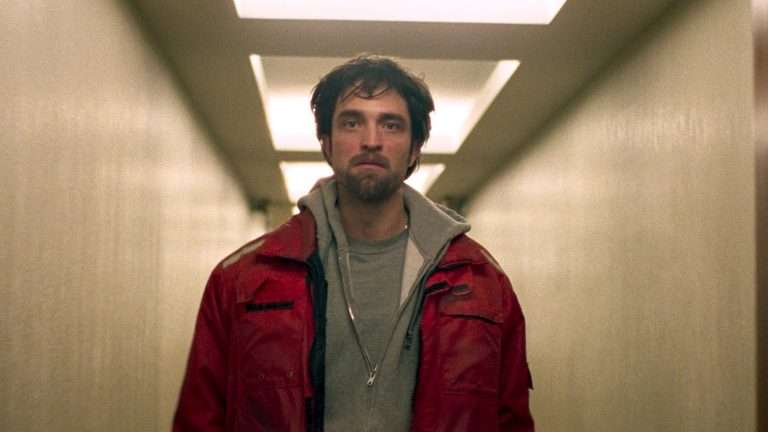Happening (2021) Movie Ending Explained & Themes Analyzed: L’événement, or Happening, is the debut directorial venture of Audrey Diwan, which won the Golden Lion at the 78th Venice International Film Festival, 2021. It also won Anamaria Vartolomei accolades galore for her career-defining performance as Annie, the protagonist in the film. The last time I felt so closeted during a movie-watching experience was with Shiva Baby, a film that makes you increasingly tense and jittery with the talks and the commotion. Unlike that, in this movie, we are in the French University space of Rouen, teeming with students, sunlight, and a lot of fresh air. But the camera follows Annie around so closely, looming upon every movement and expression of her so that it will make you afraid of accidentally tumbling inside the screen and sharing in Annie’s anguish.
Adapted from Annie Ernaux’s titular novel, Diwan refrains from abiding by Ernaux’s cold, philosophical approach in narrating this incident to the audience. The tense shots establish a female gaze that refuses to fantasize or overtly sexualize the female body, or bodies, in the course of the film. The approach is fresh and well-executed at that. While Ernaux’s own writings sought to make the personal appear political through her distance from the text, Diwan brings herself threateningly close to the subject she wishes to talk about, and yet she is careful to tread softly, unafraid to show us how an act of personal choice becomes a political one.
In doing so, this film becomes a lesson in feminist filmmaking. However, this has also garnered enough negative criticism for the director. The film doesn’t shy away from lingering upon the painful processes of illegal abortion. Vartolomei plays her part with due diligence, shining out as the quiet, brilliant student in the class equally well, as a woman selling her gold chain to be able to afford money for her abortion. This film also briefly lends an ear to the struggles and fears of working, middle-class women and sheds some light on the privileges of the educated. It is a fantastic social drama that, I firmly believe, deserves a lot of attention for its nuanced participation in the ongoing battles around women’s bodies and abortion rights around the world by holding up a fragment of personal history in front of the world audience.
However, the movie comes with its fair share of trigger warnings. It can get difficult to understand the overarching social commentary about the taboo around abortion in France, especially the quiet plot resolution. Don’t worry; we’ve got you covered below. Please make sure you watch this gem of a film first before diving into the details below.
*SPOILERS AHEAD!*
Happening (2021) Movie Plot Synopsis and Summary:
It is France, 1963, and we are transported to a university space in Rouen brimming with mellow sunlight, warm nights, and pastel colors. Annie and her friends try on brassieres that make their breasts stand out and shorten their skirts as they head to a party nearby. They seem to be engaged in dancing and flirting; Annie meets a fireman from the nearby fire station, drinks a coke with her friend, Jean, and confides in him that the other girls in class were spying on her because it suited them to think that she was a slut. Soon we find out that Annie is a brilliant student in the class and promises to help her friends study for their approaching final exam. However, when she is alone in her room, she checks her underpants for blood and writes in her diary, “Still nothing”.
We quickly understand that Annie has missed her periods, and it is three weeks past the due date. With the little money that she gets from her mother to buy herself a new novel, she visits a gynecologist who informs her that she is pregnant. The doctor warns her against aborting the fetus. He cites the reason as, “Every month a girl tries her luck and ends up dying in extreme pain”. That apart, the law around abortion is unsparing in France. While Annie half-heartedly tries to go back to her regular university life, the lines of un-mindfulness are etched on her face. She receives a certificate of pregnancy in the college mail as well. She visits another doctor, whom she informs of her pregnancy and the desire to abort the fetus. The doctor gives her a shot of medicine that will make her menstruate.
Weeks start passing by, and Annie starts looking out for changes in her physique, appetite, and sexual urges, while her grades start deteriorating. In a brief conversation with her friends about pregnancy, Helene tells them that “pregnancy is the end of the world”, and she is warned by Bridgette to not joke about abortion, clearly indicating that they couldn’t be relied upon with Annie’s secret pregnancy. She also realizes that divulging it to her mother is not an option, so she chooses to tell Jean about it. Although initially appalled at her, he allows her to come along with him and tries to forcefully get intimate with her, citing that if she has sex with him while she is pregnant, she won’t get pregnant with him.
She calls up Maxine, a student in political science from Bordeaux and the father of their unborn kid, informing him about her pregnancy and assuring him that she doesn’t want to keep it. We also find her trying to insert a knitting needle inside her vagina. The doctor informs her that the fluid she had injected herself with to help her menstruate was actually cortisol (a hormone that strengthens the embryo) because most doctors in France were anti-abortion. She had managed to scrape the surface of the foetus but not damage it. He asks her to, ultimately, accept the pregnancy.
She reaches out to Helene and Bridgette about her condition, but they stop being friends with her, calling it none of their ‘business’. Her professor tries to get her to open up about what was bothering her. Soon, she visits Maxine in Bordeaux and receives no hope or help from him, ultimately returning. Through her growing mental and bodily discomfort and increasing attraction toward the fireman, she finds some information about a woman who would help with the abortion using sanitized, safe instruments.
Annie sells her personal items to gather the money for the procedure. However, the procedure has little effect on her the first time, and she risks her life to go through it again. One night, Annie suffers from a concussion and bleeds out the foetus. She is taken to a hospital, and the doctors opine that she has had a miscarriage. At the end of the film, we find her going back to the university on the day of her final examination.
What is the meaning of the title, Happening?
If we lexically understand the word, ‘happening’ means ‘to occur’ or ‘to happen’, denoting that something – an event, perhaps – is in action. In the narrative of the film, the embryo inside Annie is developing into a healthy foetus. No matter how hard she tries to abort it, her womb refuses to listen to her wishes. The paranoia around her unforeseen pregnancy causes Annie to enter into a conflict with her own body.
The audience bears witness to this deteriorating relationship as time trickles in the course of the plot. While Annie is going through this mental turmoil, her grades at college are deteriorating. An act is occurring constantly and simultaneously. The title could also refer to a particular event or incident that stands out of the ordinary sensationally. Here, Annie’s pregnancy is one such event, in the event of her ultimately having a medically certified ‘miscarriage’.
Is Happening based on real events?
The movie, Happening, is based on a screenplay adapted from Annie Ernaux’s popular French novel by the same name that was published in 2000. The book is semi-autobiographical, and it actually recounts Ernaux’s story of illegal abortion as a student in Rouen.
In many of Ernaux’s interviews, she has confessed to adapting a cold, realist, and objective view of the events of her life to look beyond herself and hold up a mirror to the society itself. Although the screenplay isn’t lifted from the novel, the main narrative is the same as the one in the titular book. Hence, it can be said to be based on a real event.
Related to Happening (2021) Movie Explained – Windfall (2022) Movie Explained: Ending and Themes Analyzed
Why do Annie’s best friends leave her?
The film begins with Annie and her friends trying on brassieres that help their breasts stand out in any outfit they wear. There is the excitement of trying something adventurous and radical in their own ways against the norms of the more restrictive, moralistic French society around them. In fact, Bridgette goes to the extent of showing Annie and Helene in their college room the hip movement that helps derive pleasure during coitus. However, when Annie tells them about her pregnancy and her decision to abort the foetus, they decide to stop being friends with her for two reasons.
One, they didn’t want to be associated with someone whose moral character was questionable for having had sex; and two, abortion was a capital crime in France since the days of the Vichy regime during World War II. Anyone remotely associated with facilitating a pregnant woman in aborting her foetus would be thrown into the prison. We later come to know, when Helene confides in Annie about her relationship with a young boy during summer, that such affairs were kept private mostly to keep others from developing judgments about their character and morality. This also shows that Annie’s friends might have been the educated, liberal young students in contemporary French society, but they were still governed by the societal conditioning of their times.
Happening (2021) Movie Themes Analysed:
Abortion as a Social Taboo in France:
Abortion was a capital crime against the state in France since World War II (1939-1945). French society, being religiously Catholic and rigorously patriarchal towards its women, did not believe in the idea of aborting a conceived child, an act of choice, since it was believed to be a gift from God. However, post-war, France saw a rising rate of unsafe abortions. Studies also recorded a sharp rise in migration of women to the UK, which was comparatively liberal in their outlook.
With the publication of Simone de Beauvoir’s The Second Sex, an introductory and seminal text in the second-wave feminist movement, in 1949 and the introduction of contraceptives in America, a fertile ground was created for the important debate around women’s choice in childbearing. Despite these brewing conversations and incoming changes, French society was still riddled with their traditional ban on abortion until 1975, when the government offered to legalize it under the law. The law was granted only in 1979. In this film, we are situated in 1963, the latter half of the watershed period between the Second World War and the Student Protest in May 1968, which threatened to rattle the existing socio-political moralities governing French law.
Talking about pregnancy, let alone abortion, is a hush-hush thing among the women, as we witness in the brief conversation between Annie and her friends at university. Interestingly, every conversation around pregnancy and abortion is greeted with a change in body language and facial expressions among the people who come to know about Annie’s pregnancy. The second gynecologist’s false medicine to mislead Annie into believing that she will have an abortion is another instance of how the healthcare system was rigged with pro-life ideas.
The illegal abortion practices rampant under the fine fabric of contemporary society are prominent from the little we hear about the women, who run their business in private, and the warning Annie receives about maintaining complete silence during the procedure so that no sound escapes the paper-thin walls of the apartment. The secrecy around it, you can tell, is stifling. The narrative builds itself till the moment Annie finally has an abortion and the doctor treating her in the hospital calls it a miscarriage, in the event of which she gets medical treatment and is allowed to go back to fulfill her dreams. In any other case, Annie would be in prison for her so-called crime of exercising her choice upon her own body, and, maybe, we would never have a story.
Choice: The Ultimate Marker of Female Agency:
One of the more interesting aspects of the movie is the choices the protagonist makes. It is important to note here that the act of choice or choosing is an important marker of female agency in the age-old debates around feminism in the western world. It is also true that choices are never made in isolation and are more often than not always governed by socio-political, economic, and psychological conditions.
Here, the pregnancy itself is a cause of Annie’s choice to become physically intimate with Maxine during the summers. She also suffers through mental and emotional turmoil to the extent of selling away her books at throwaway prices to execute her choice of not giving birth to a child. She is adamant in the face of social alienation, moral policing, and available medical science. She constantly repeats that she wants to finish college and become a writer; she has a dream, and she will not allow the baby to hamper it.
She explains her choice on one occasion when she tells her gynecologist that she will have a child when she will be able to take care of it, and having one now will leave her peppered towards it for the rest of its life. She also chooses to indulge in the advances of the fireman and has sex with him despite the reservations of her friends at university. Her silence in the face of difficult questions, such as the one posed by her professor, is also her choice. The screenplay accommodates her choices to hint at how her personal choices have become a political revolution for a woman of her age and time.
Happening (2021) Movie Ending Explained:
After Annie has collected the money for her abortion, she visits the lady whose contact she had received earlier on a regular Monday afternoon. The lady instructs her to make no sound even if she felt the sharpest pangs of pain when she performed the process on her; else, she would be forced to terminate the process. She tells her that since her foetus was 12 weeks old already, aborting it would be tough but doable. Further, she talks about other women who carried out this process using bleach and assures Annie that she was more careful with her instruments, sanitizing them regularly.
She tells Annie that by no means must she end up in a hospital; otherwise, her life will be done with, and she would give her practice away. Despite herself, during the procedure, we find Annie writhing in pain, crying out twice, only to be glared at by the lady. After it is done, the lady tells Annie that the abortion must begin within 24 hours. However, Annie waits, and nothing happens. She goes back to the lady and insists on going through it again, knowing fully well that it could cause serious physical medical emergencies. Later at night, she feels a sharp pain and ultimately ejects the foetus. When one of the girls finds her on the toilet seat, Annie asks her to fetch a knife and chip the umbilical cord. She starts facing concussions and losing a lot of blood once she is brought into her room, so the other girl arranges for her to be taken to a hospital. On the doctor’s table, Annie hears the incident being diagnosed as a miscarriage and loses consciousness.
The film ends with Annie walking back to her class at university to take her final exam. She looks determined to clear it and doesn’t draw too much attention to her presence. The teacher recites a few lines from Victor Hugo and instructs them to begin writing. We can assume that Annie went on to complete her education and fulfill her dream of becoming a writer without allowing this unforeseen event of pregnancy to define her dreams and her future.
Happening (2021) Movie Links – IMDb, Rotten Tomatoes
Happening (2021) Movie Cast – Anamaria Vartolomei, Kacey Mottet Klein, Luàna Bajrami, Louise Orry-Diquéro, Louise Chevillotte, Pio Marmaï, Sandrine Bonnaire







![Here and There [2021]: ‘NYAFF’ Review – Rom-Com in the Time of COVID-19](https://79468c92.delivery.rocketcdn.me/wp-content/uploads/2021/08/Here-and-There-5-NYAFF-768x488.jpg)


![Halloween Kills [2021] Review: Adds nothing of value to the franchise lore](https://79468c92.delivery.rocketcdn.me/wp-content/uploads/2021/10/Halloween-Kills-768x512.jpeg)

